Pound falls and UK borrowing costs rise as Reeves ditches plans for income tax hike – as it happened
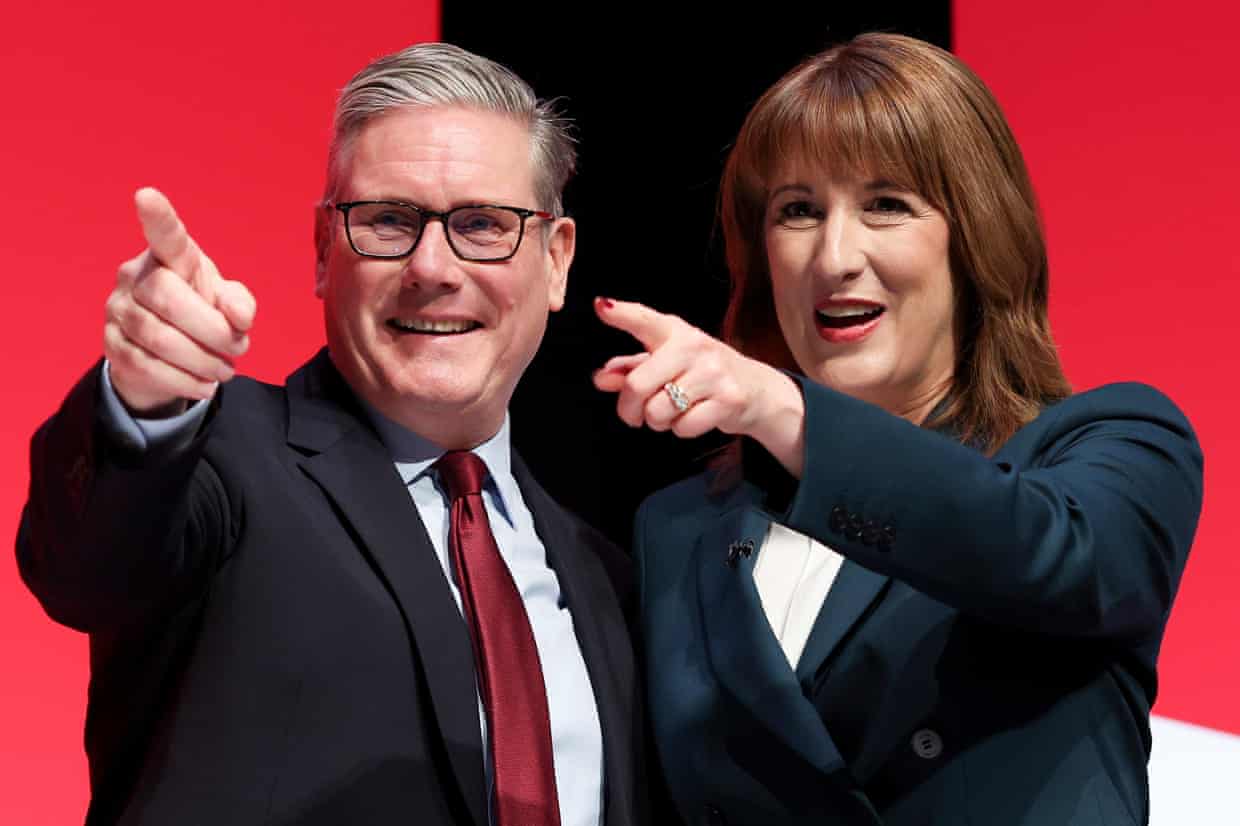
Time to recap…The pound has fallen and the price of UK government borrowing rose today as investors worry over how the Labour government plans to cover its fiscal shortfall in the upcoming budget.It was all in reaction to news that chancellor Rachel Reeves was backtracking on plans to hike income tax rates, in what would have resulted in breaking the party’s manifesto pledge.However, with just two weeks to go until the 26 November fiscal event, it has left investors scratching their heads over how the chancellor plans to raise funds in order to cover policies like increased defence spending or the likely scrapping of the two-child benefit cap.Meanwhile, the FTSE 100 not only suffered from those domestic jitters, but also global fears over an AI tech bubble, which continue to drag on US stocks on Wall Street.Investors are also worried that the Federal Reserve will hold off cutting interest rates in December, and the impact of delayed data on rate decisions, following the US government shutdown.
Prolonged uncertainty around fiscal policy is causing decision paralysis at UK business, consultancy firm AlixPartners has warned:Taxation has become the UK’s own tariff, undermining business with the same unpredictability as any trade barrier,But headlines fixating on tax rates miss the deeper issue,The real damage for companies comes from prolonged uncertainty and speculation that paralyse strategic planning and investment decisions,CEOs are pushed into behaving like currency speculators, making high stakes calls on shifting ground,And recent history shows that each budget provides fleeting clarity before the cycle begins again.
Fears over AI over-valuations continue to hit Wall Street, with major indexes all falling into the red at the start of US trading:Dow is down 434.03 points or 0.91% at 47,023.19S&P 500 is down 67.49 points or 1% at 6,670.
03Nasdaq is down 321.58 points or 1.41% at 22,548.78The UK’s blue chip stock index has been hit with a double-whammy of domestic and international jitters, sending the FTSE 100 down nearly 2% so far this session.While US stocks continue to take a battering over fears of an overvaluation of AI tech firms, and a delayed Fed rate cut, those worries – which would usually spillover into UK stocks anyway – have been compounded by today’s budget speculation.
As Dan Coatsworth, head of markets at AJ Bell notes:Investors in the UK have their own issues to process, let alone whether there is a potential AI bubble waiting to burst,The index is down 1,6% at around 9,647 points,Investors are reportedly piling bets against the pound, amid concerns over how Reeves will fill the fiscal black hole by the time the budget comes around on 26 November,Citing analysts from Bank of America, Reuters is reporting that traders are amassing short positions on the UK currency, which is now the second worst performing major G10 currency over the past three months, having dropped 3% against the US dollar to about $1.
315.Our political editor Pippa Crear has confirmed that sources are now ruling out cutting the thresholds for paying higher rates of income tax, and that we should expect “income tax thresholds to be frozen for another two years, taxes on salary sacrifice schemes, fuel duty equivalent for electric vehicles - plus ‘smorgasbord’ of other measures.” More on that over at our politics live blog:The left-leaning New Economics Foundation is warning that – regardless of whether there is an improved OBR forecast signalling a smaller fiscal black hole – the government has to be “bold” to support the country after years of austerity and meet the challenges of an aging population.While the NEF said it was clear that some tax hikes were inevitable, it warned against cutting income tax thresholds, saying the move would drag people who were already struggling with low wages, into paying taxes they can’t afford.That could spell trouble for families without further efforts to ease cost of living pressures.
Hannah Peaker, the NEF’s deputy chief executive, said:Any tax rise should be progressive by starting with the wealthiest, not push up inflation and be earmarked for voter priorities like the NHS and the cost of living.Equalising capital gains so profits from investment are taxed at the same rate as wages would be an important first step.But the government must also use this budget to signal how it will boost long-term investment and productivity.Reassessing its fiscal framework and the OBR’s role in examining it has to be a priority, as well as closer working with the Bank of England.US stock futures are pointing to lower market open state-side, extending Thursday’s sell-off which was sparked in part by doubts over a Fed interest rate cut in December.
Global stock markets are also being hit by jitters that AI stocks have been overvalued, and are due a price correction.Dow futures are down 0.58%S&P 500 futures are down 0.9%Nasdaq futures are down 1.38%Richard Hunter, head of markets at interactive investor, says: Investors have been shuffling uncomfortably in their seats with AI spending going into overdrive, the success of which will not become apparent for some time, and the stretched valuations which have resulted from the relentless buying interest.
The Nasdaq bore the brunt of the latest uncertainty, led by declines in the likes of Nvidia, Alphabet and most recent market darling Palantir Technologies.In addition, there was also a reminder that sentiment is skittish as Disney shares fell by almost 8% following a mixed set of fourth quarter numbers.At the same time, Hunter says, there are concerns that – despite the US government shutdown having ended – the lack of economic data caused by the shutdown (which has eft the Federal Reserve “dealing blind”) may not be delivered in time for the Fed’s next meeting in December.Hunter adds:As such, investors considered that the Fed may therefore decide to play safe and stay put on interest rates until full visibility is restored.Comments from several Fed members that monetary policy should remain restrictive led to a dip in the market consensus for a cut, dropping to a 50/50 chance from what had been all but nailed on just two weeks ago.
BREAKING: The consortium led by RedBird Capital has dropped its £500m bid for the Telegraph, throwing the future of the daily and Sunday titles into further uncertainty.The private equity group founded by Gerry Cardinale has been under intense attack in recent weeks with the Telegraph newsroom – and allies including former editor Charles Moore and ex-Spectator chief Fraser Nelson – publishing a string of pieces calling for its links to China to be investigated.Lisa Nandy, the culture secretary, had been expected to announce a decision imminently on whether to let the bid progress and also if it should be subject to scrutiny by the media regulator, Ofcom, and the competition watchdog.10-year and 20-year gilt yields are on the rise again, as investors try to determine how confident they are about the Labour government’s ability to raise enough funds to offer some fiscal certainty and stability long-term.The 20-year gilt yield is at 5.
233%, up 0.125 percentage points.That is the highest level since mid-October.Estimates by Berenberg suggest that the UK government needs to raise £30bn, or around 1% of GDP, in the 26 November budget into order to get back on course to meet its fiscal target to meet all day-to-day spending with tax revenues by 2029-2030.Berenberg explains that each percentage point increase in income tax rates would raise over £10.
5bn by the time that target year rolls around.However, a 2 percentage point increase would be a “simple, relatively efficient and front-loaded mechanism with which to raise over £20bn,” Andrew Wishart, senior UK economist at Berenberg says.But in order to avoid breaking Labour’s manifesto pledge to not “increase national insurance, the basic, higher, or additional rates of income tax, or VAT”, the government is said to be instead looking to lower the threshold at which income tax increases from 20% to 40%.But simply reducing the threshold from £50,270 per year to £46,000 would still leave the public finances £6bn short of what it could raise through an income tax hike by 2029-30, “thereby making additional hikes in smaller taxes necessary, too,” Berenberg says.Wishart explains:As a result, the likelihood that the government will have to raise taxes again (or cut spending) in the future, in turn generating further bouts of policy uncertainty, has grown.
He adds:A smaller and more back-loaded fiscal tightening would therefore damage the government’s fiscal credibility and limit the extent to which the Bank of England lowers interest rates in 2026,That is the straightforward economic explanation for the 7bp rise in the 10-year gilt yield to 4,50% today,The u-turn also demonstrates a lack of political competence which has probably led investors to increase the probability they attach to a change in the leadership of the Labour party and government,The risk is that the Labour party replaces Keir Starmer and Rachel Reeves with a duo positioned further to the left on the economic policy spectrum and less committed to fiscal sustainability.
UK stock indexes are still suffering, with the FTSE 100 losing further ground and trading down 1.3%.There are only three companies trading in positive territory, with banks like Lloyds and NatWest still among the biggest fallers, each down around 3.3%.Analysts are expecting further easing in bond prices as investors digest the flurry of news on Reeves’ budget plans.
Hal Cook, senior investment analyst at Hargreaves Lansdown says: As is often the case with quick reaction to surprising news, it’s likely that these moves are over-reactions and yields definitely have potential to come back down from here.Just because Labour may no longer be planning on increasing income tax, we don’t yet know what they may plan to do instead.Government bond markets definitely have the power to keep government budgets in check, as we saw in the UK with the Truss mini-Budget in 2022 and in the US around Liberation Day earlier this year.Watch this space.Full story: UK borrowing costs up after markets spooked by Reeves’s income tax U-turnBorrowing costs for the UK have increased and the pound fallen after the chancellor’s extraordinary last-minute decision to ditch tax-raising plans in the upcoming budget.
Interest rates on government bonds rose by more than 10 basis points in early trading, putting them on track for their worst day since 2 July, when investors responded to a tearful appearance by Rachel Reeves in the House of Commons chamber,The pound meanwhile dropped 0,5% against the dollar,The market reaction came after government sources confirmed Reeves had dropped plans to raise income taxes to help close a budget shortfall of about £30bn,The U-turn came despite weeks of warnings to Labour MPs and the wider public that the chancellor might have to break her manifesto pledges on tax to avoid a market meltdown.
Reeves has been working on plans for weeks to raise income taxes at the budget, despite having promised not to do so before the election.The chancellor has even invited external experts to brief Labour backbenchers on the difficult decisions they are likely to have to defend.Read more:
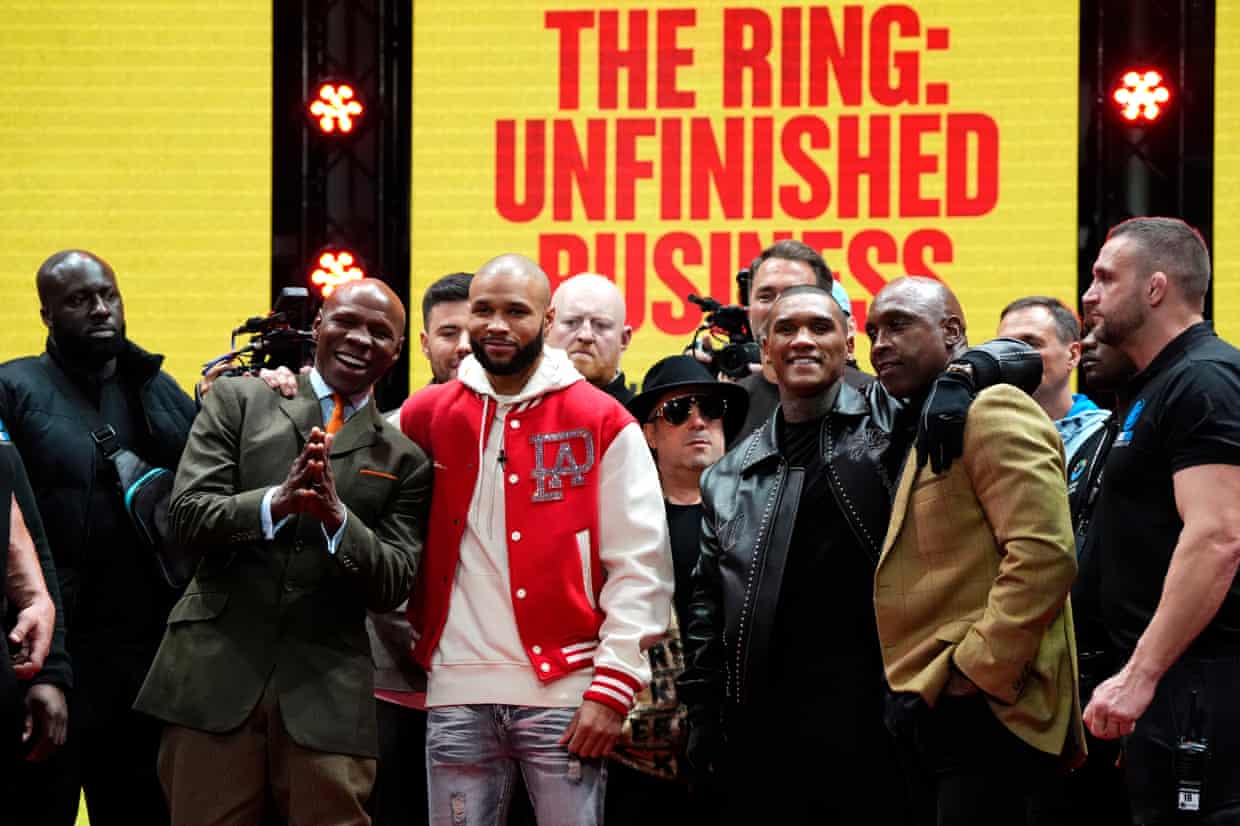
Ill-advised Benn-Eubank Jr rematch another example of boxing’s cynicism
Boxing has always been a deeply cynical business. The overwhelming objective for most promoters, and many fighters, is to rake in as much money as quickly as possible without any undue concern about looking crass or desperate.Anyone who has spent just a little time in the company of boxers will understand that they deserve whatever cash they can make out of such a hard and dangerous activity. But promoters have ransacked the pockets of boxing fans through the decades while peddling anything and everything from Joe Louis’s “Bum of the Month” club to this week’s proposal that Anthony Joshua may make tens of millions of dollars if he steps into the ring to face Jake Paul, the former YouTuber, next month.Saturday night’s rematch between Conor Benn and Chris Eubank Jr is a little different

Who is your favourite cricketer in the history of the men’s Ashes?
It had to be one or the other: the man who has scored the most runs in Ashes history or the man who has taken the most wickets. In the end, Shane Warne’s 195 wickets beat Don Bradman’s 5,028 runs. But, Warne is about more than numbers. His style, humour and charisma made him the kind of player you rooted for even when he lined up against your team. He was a joy to watch

Ford and George urge England to make their mark by beating New Zealand
Maro Itoje’s England have been urged to cement their place in sporting legend by becoming only the nation’s ninth side to defeat the All Blacks.England head into Saturday’s crunch encounter as marginal favourites, aiming for a first Twickenham win over New Zealand for 13 years, and George Ford has revealed that the former captain Jamie George has issued a call to arms, imploring his teammates to carve themselves a slice of history.Steve Borthwick’s side are on a nine-match winning run but England’s men have lost their past three Tests against New Zealand and have not beaten them since the 2019 World Cup semi-final. The last time they defeated the All Blacks at Twickenham was in 2012, when Manu Tuilagi ran riot.Saturday’s match is the 47th meeting between the sides and England have triumphed on eight occasions in the fixture’s 120-year history but Borthwick’s troops sense their opportunity to make a name for themselves
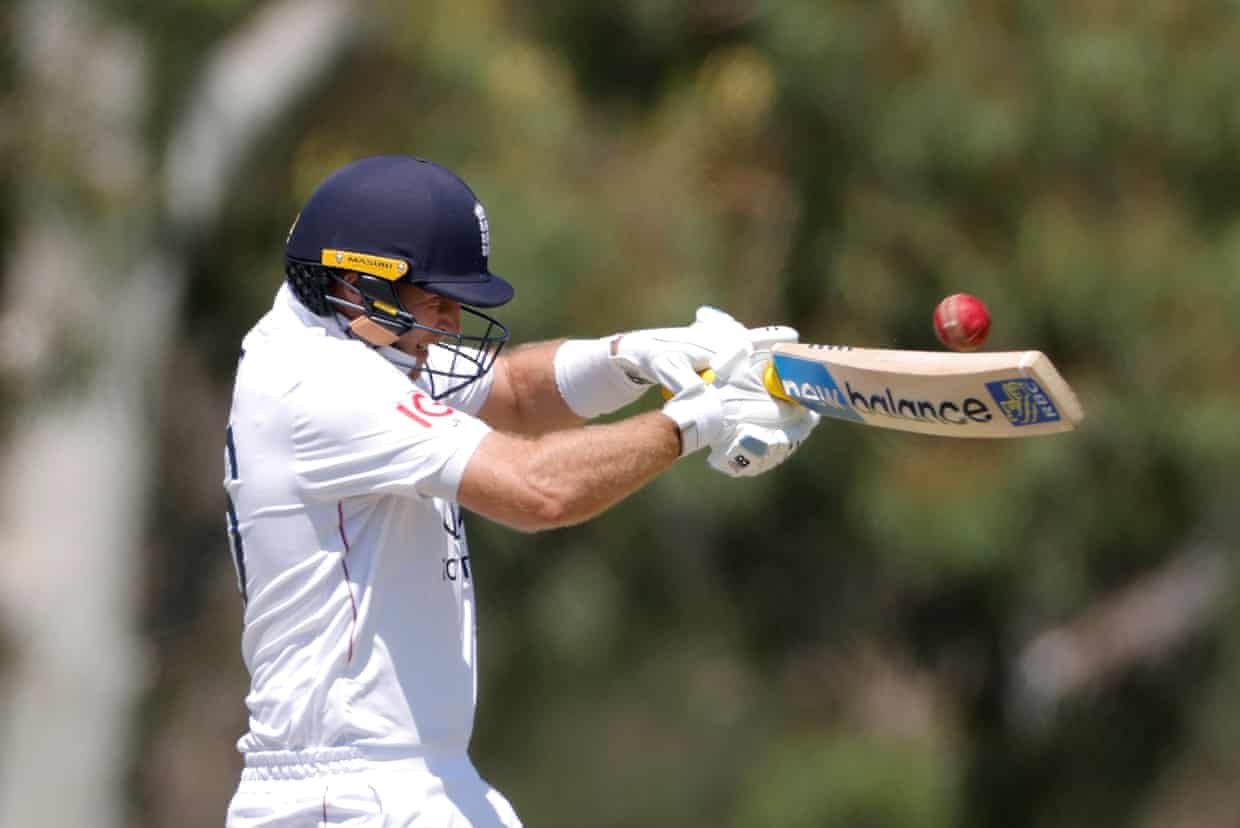
Joe Root splutters but Ollie Pope prospers in England’s Ashes warm-up
Joe Root’s attempt to lay to rest the ghost of Australian failures past started with the addition of a fresh one, as his fourth Ashes tour started in brief and inglorious style. The world’s No 1 Test batter, the subject of much pre-series chatter because of his poor average on previous such trips, was the most notable failure as many of his teammates inflated their confidence along with their scores across another day of breezy cricket and indeed weather against the Lions at Lilac Hill, which the senior side ended, having been bowled out moments before the close, with 426, a lead of 51.Zak Crawley described it as “a flat wicket for sure” and with the atmosphere provided by the few dozen spectators similar, but with intense heat expected from the stands and pitch when the real action starts next Friday, it is not clear to what extent anyone is markedly more prepared now than they were a couple of days ago.“Cricket’s cricket, it’s time in the middle,” Crawley said. “We’re doing everything we can with what we’ve got and we feel like we’re going to be ready

Numbers crunched: how the votes were cast in the Guardian’s men’s Ashes top 100
More than 800 men have played in an Ashes Test. England picked most of them in the summer of 1989. But the process of selecting the Guardian’s Ashes Top 100 required something more scientific than that infamous shemozzle.Let’s start with the small print. We asked 51 judges to select their top 50 men’s Ashes cricketers, from which we calculated a top 100: 50 points for No 1, 49 for No 2 and so on

From conscience to platforming Trump: inside the slow death of ‘woke’ ESPN
“What happened to the Redskins, by the way?” Donald Trump asked in an interview on the Pat McAfee Show that notably did not stick to sports. His call-in appearance on Tuesday’s program to mark Veterans Day was meant to be a major coup for ESPN, the first time Trump had been interviewed on the network as a sitting president. But viewers could have just as easily been mistaken into believing they were watching Fox News.Trump took his usual shots at Joe Biden, claimed credit for the Department for Veteran Affairs’ high approval ratings and declared victory over the Democrats in a government shut down that dragged on for a depressing 43 days. Rather than push back against the political self-promotion, McAfee cheered Trump on before opening the floor to his lackeys to ask him which NFL coach would make a great president

Trump’s targeting of alleged drug vessels strains UK-US intelligence ties
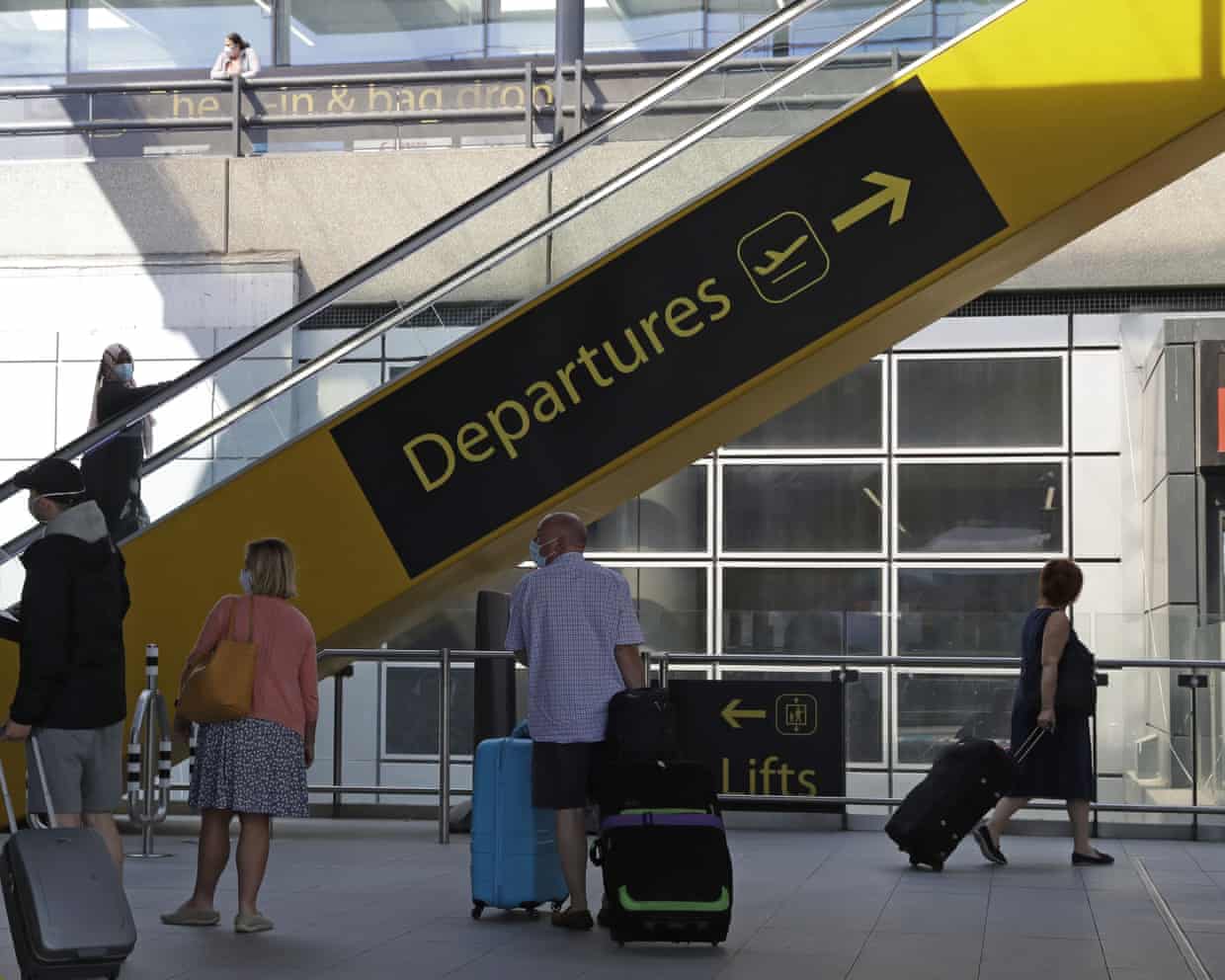
Britons living abroad: tell us your views on UK politics today
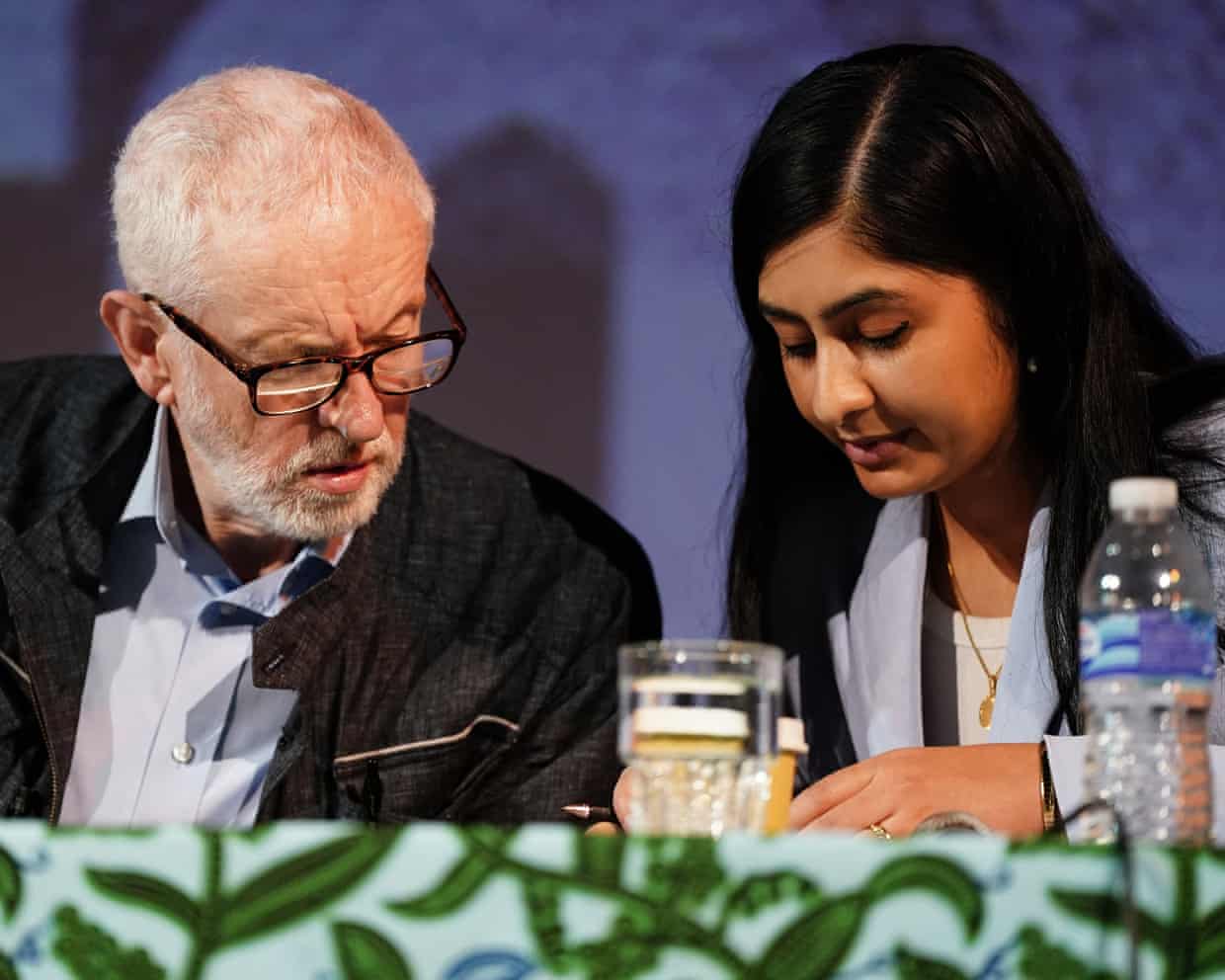
Your Party receives ‘small portion’ of withheld supporters’ donations
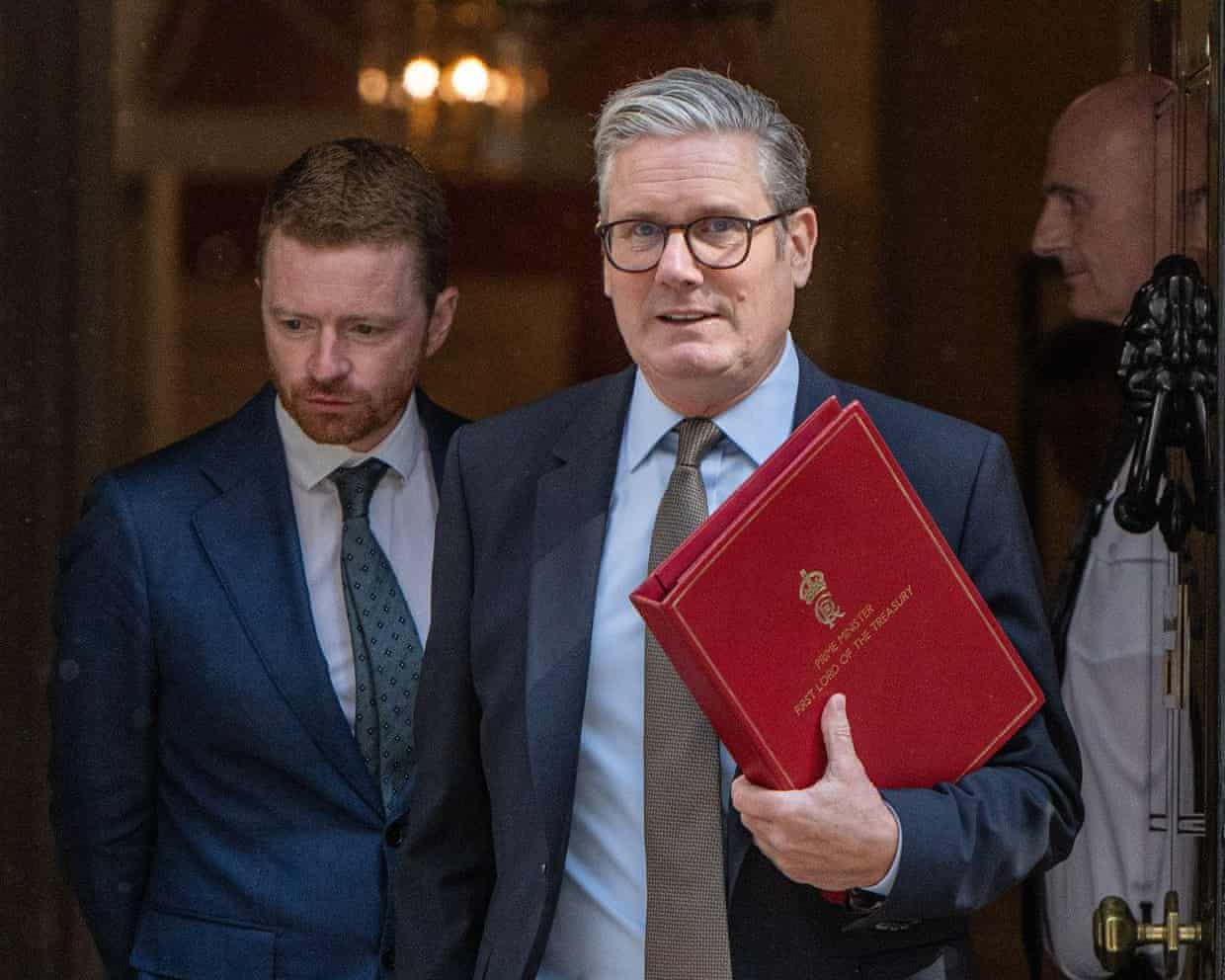
Starmer stands by McSweeney and says he has been ‘assured no briefings against ministers done from No 10’ – as it happened

Starmer defies calls to sack chief of staff, claiming briefing didn’t come from No 10
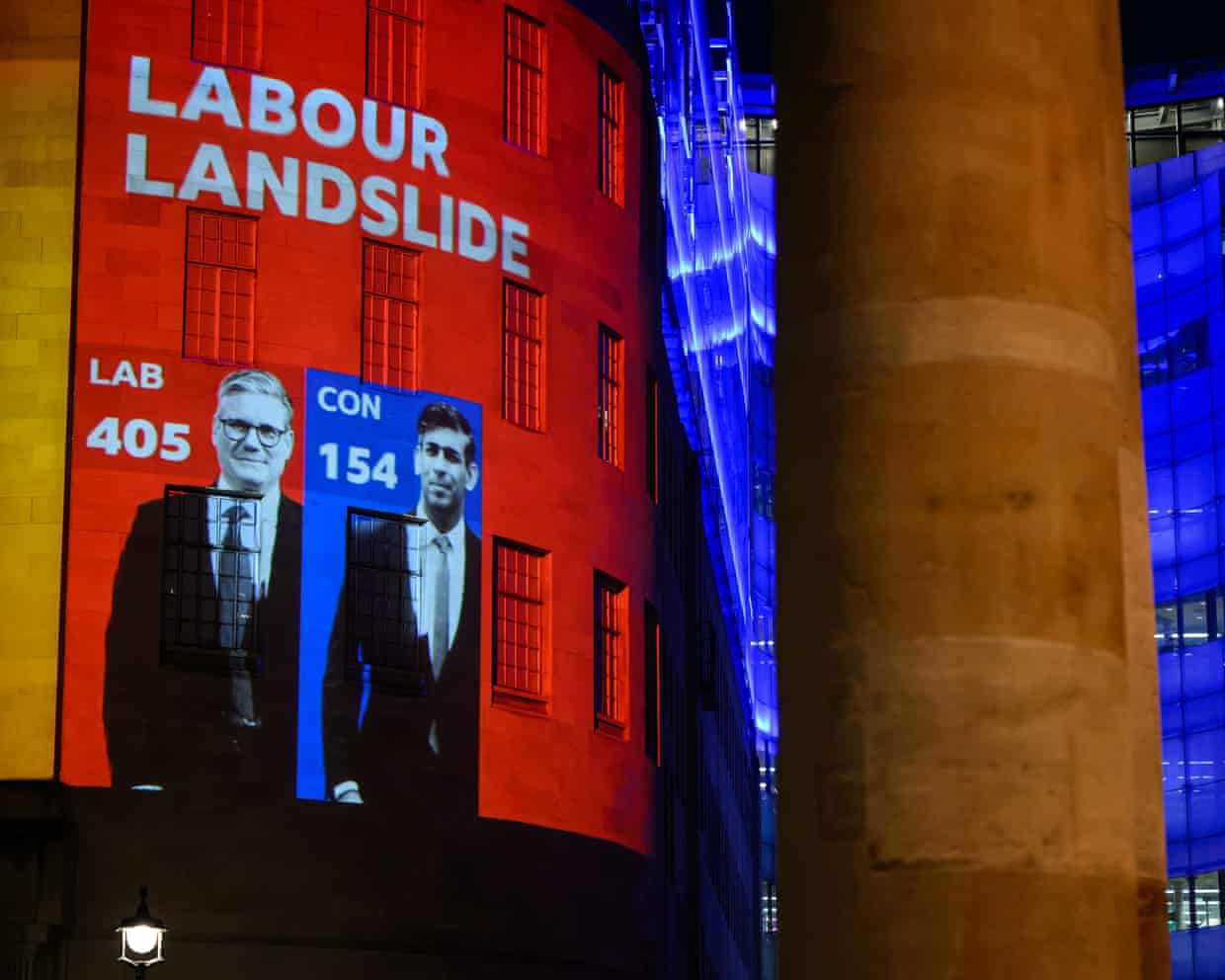
Labour must accept that the two-party age is over and embrace PR | Letters